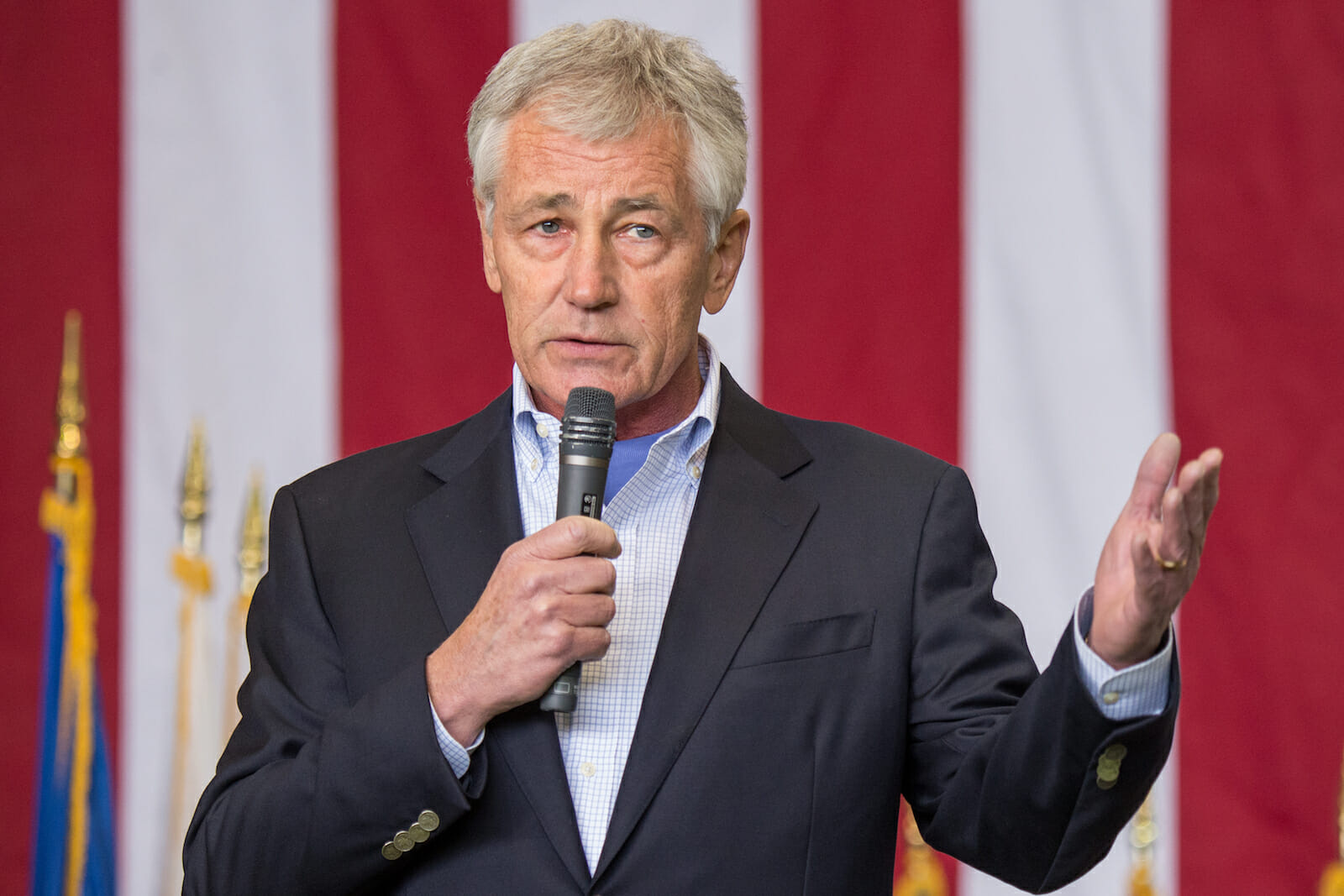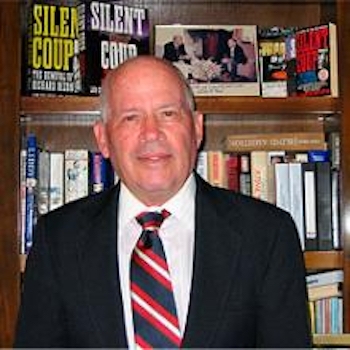
Chuck Hagel’s Confirmation Hearing: Neocons Search for Relevance
Chuck Hagel’s going over at the hands of Republican members of the Senate Armed Services Committee was more than an argument over political and policy differences; it was another spasm in the efforts of neoconservatives to define U.S. security policy in their own image.
Chuck Hagel, a Republican former two-term senator from Nebraska, had once been considered one of the neoconservatives’ own, at least for a while. After joining the Senate in 1997, he quickly became one of Republican Sen. John McCain’s more avid wingmen. He helped run the Arizonan’s 2000 campaign for the party’s presidential nomination. Hagel also voted for the 2002 resolution to authorize U.S. action against Iraq, the precursor to the March 2003 invasion. But the Iraq war changed Hagel, but not McCain and the Republicans’ neocon core. Hagel distanced himself from many of the Bush administration’s failed war policies. When Bush sought to send 30,000 extra troops there in 2007, Hagel dissented, as did the man who nominated Hagel to be the next Defense Secretary, Barack Obama.
Now, as Obama’s nominee, Hagel finds himself in the middle of a more-than-40-year war over control of U.S. military and national security policy. The neoconservatives who fought against Presidents Richard Nixon, Gerald Ford, Jimmy Carter, Bill Clinton and now Obama recognize that Hagel’s confirmation would reverse the policies of “peace through strength” that dominated the George W. Bush and Reagan administrations.
That realization was clear from the opening statement of the panel’s ranking Republican, Sen. Jim Inhofe of Oklahoma. Confirming Hagel, Inhofe said, would be “retreating from America’s unique global leadership role and shrinking the military.”
That, he said, would not make America safer. “On the contrary, it will embolden our enemies, endanger our allies and provide opportunity for nations that do not share our interests to fill the global leadership vacuum we leave behind.”
Inhofe’s statement, as well as McCain’s subsequent questioning of Chuck Hagel about the Iraq surge, echoed the spiritual father of the neoconservative movement – German émigré and strategist Fritz Kraemer. Although Kraemer worked behind the scenes for decades as an influential Pentagon policy analyst, he was the man who discovered Henry Kissinger as a young Army enlisted man during World War II and sponsored his rise to become national security adviser under Nixon. While in the Pentagon, Kraemer also shaped the policy views of Donald Rumsfeld and Dick Cheney, who would decades later parrot Kraemer’s beliefs as they helped launch the Iraq war.
The failure to marshal its military strength and then project it around the world was a form of “provocative weakness,” Kraemer believed. It would encourage America’s enemies to constantly test it. Without a hardened resolve and willingness to use force, the United States would atrophy and invite its destruction. Cheney, Rumsfeld and Paul Wolfowitz used that theory to send the nation into Iraq, where the Bush administration’s failures exposed the theory’s weaknesses and invited many of the Pentagon’s current problems.
The irony is that instead of scaring neighboring Iran, the neocons’ invasion of Iraq emboldened it. The limits of American power were exposed. Now the United States is forced to fight a constant battle to keep Iran from obtaining nuclear weapons and menacing Israel and its neighbors. Hagel realized that while a senator and as an informal adviser to Obama since 2009. Inhofe, McCain and Sen. Lindsey Graham, R-S.C., have not. As they showed during the confirmation hearing, they continue to promote the same discredited views that have weakened U.S. defense by grinding it down in an eight-year ground war in Asia.
Hagel, a Vietnam veteran like McCain, realized the damage done to U.S. interests. As Defense Secretary, he will join with Obama to pare down the military prudently and weigh each use of military action against a more nuanced scale of national interest. While often painfully inarticulate in his own defense, Chuck Hagel possesses the gravitas and knowledge of the Pentagon to team with Obama to make it a sharper, more potent military force. Instead of a military bloated by the waste fostered by more than 11 years of war in first Afghanistan, then Iraq, Hagel will make it more focused.
That is why the Republican opposition to one of their own was so visceral and often hyperbolic. They know what a Hagel victory will mean – another defeat in their attempt to revive the Kraemerite doctrine. The real target of their hearings was Obama, who has beaten them twice. Just as I wrote in The Forty Years War, the neocons pick their proxy battles in a never-ending fight to push the United States into a more military and adventurous foreign policy. Chances are they will lose again. Chuck Hagel has the votes to win confirmation. But if he fails, the fight will be a major defeat for Obama’s second-term policy agenda and a sign there’s still life in the neoconservative movement that got us into this mess in the first place.

